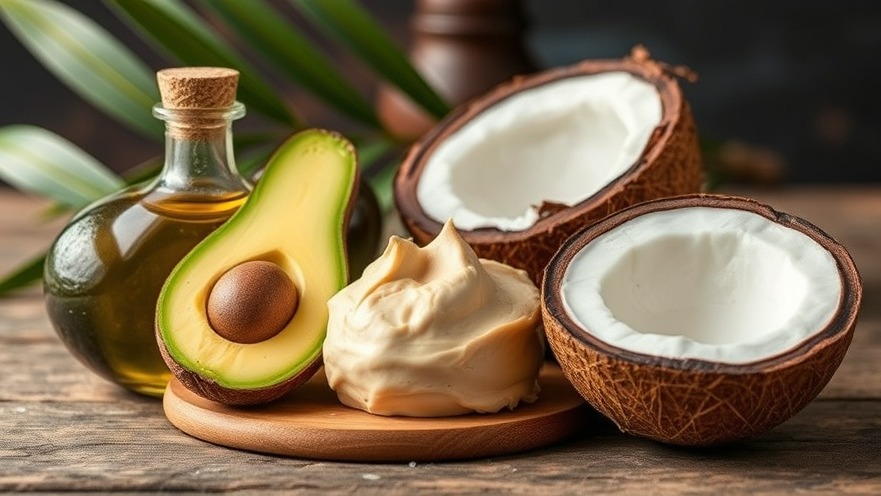
Why Replacing Butter with Plant-Based Oils is a Smart Move
In a groundbreaking study presented at the American Heart Association's Scientific Sessions, researchers revealed significant implications for our health by simply swapping butter with plant-based oils. Those who regularly consumed oils like olive, soybean, and canola had a noticeable edge in longevity compared to butter enthusiasts. With the new finding, which highlights a 16% reduction in mortality risk associated with higher plant-oil intake, it's vital for both healthcare providers and patients to consider such impactful dietary adjustments.
The Shocking Truth About Butter Consumption
The study’s findings revealed that individuals with a heavy butter diet faced a 15% increased risk of mortality from various causes. In contrast, merely replacing 10 grams of butter with healthier oils could potentially reduce cancer-related deaths by up to 17%. The numbers are compelling: subtle changes in dietary habits can lead to monumental health outcomes.
Understanding the Dietary Risks and Benefits
Led by Dr. Yu Zhang and published in JAMA Internal Medicine, the research scrutinized the eating habits of over 221,000 participants from notable health studies over more than 30 years. The assessment combined data on both butter and plant-based oil consumption, raising crucial questions about dietary fats.
Counterposing Myths in Dietary Choices
Despite the waves made by social media influencers championing butter as a 'superfood,' evidence suggests otherwise. Prominent scientists, including Dr. Walter Willett from Harvard, have dispelled the myths surrounding saturated fats typically found in butter, arguing that they pose risks to personal health when consumed in excess. In a society increasingly gravitating towards quick fixes and trendy diets, a return to fundamental science about food can empower individuals to make better choices.
The Choice of Plant Oils – A Healthier Alternative
Not all oils are created equal. The preferences should lean towards oils high in good fats – mainly omega-3 fatty acids found in canola, olive, and soybean oils, which enhance heart health and support metabolic function. Nutrition experts recommend integrating varied plant oils into meals for optimal benefits while maintaining moderation.
Small Changes, Large Impact: Tips for Implementation
For concierge medical practices, promoting a gradual shift in dietary habits can result in considerable health benefits for patients. Consider recommending these small but effective tactics:
Encourage patients to replace butter with a plant-based alternative in cooking, especially when sautéing or baking.
Introduce simple recipes that highlight the use of these oils, helping patients visualize the substitution.
Emphasize the importance of variety in oil types to ensure balanced intake of fatty acids.
Take Action: Enhance Patient Wellness through Conversations
As healthcare professionals with the intent to build collaborative patient relationships, it’s essential to equip patients with knowledge. By having candid conversations about dietary swaps and sharing the newfound research insights regarding plant-based oils, concierge practices can position themselves as leaders in patient education and long-term wellness.
Empower your patients today with actionable insights for a healthier future. Share the remarkable findings from this study, discuss dietary modifications, and encourage a shift towards healthier cooking habits. A little change in dietary fats might just make a massive impact!
 Add Row
Add Row  Add
Add 






Write A Comment